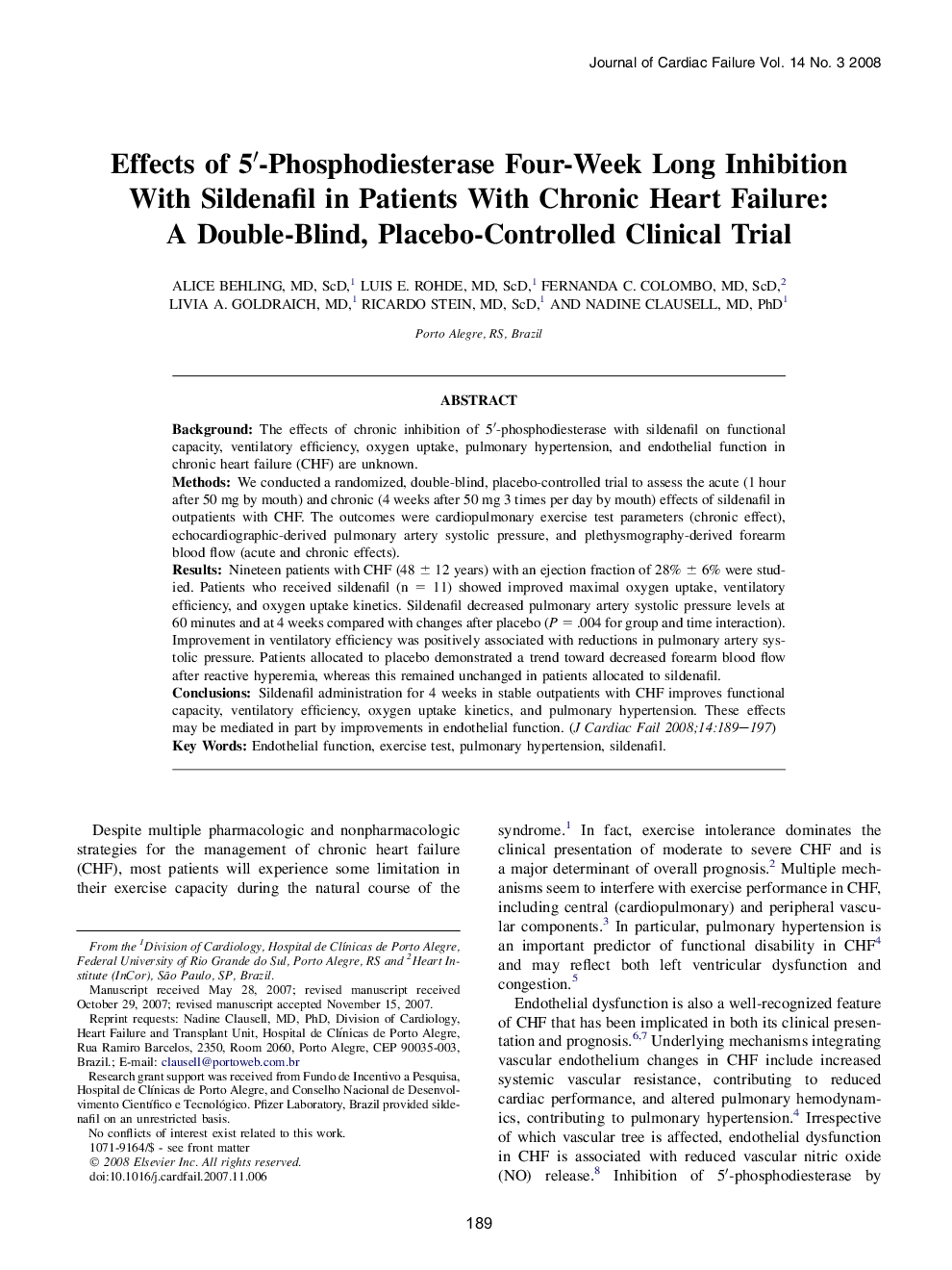| Article ID | Journal | Published Year | Pages | File Type |
|---|---|---|---|---|
| 2961239 | Journal of Cardiac Failure | 2008 | 9 Pages |
BackgroundThe effects of chronic inhibition of 5′-phosphodiesterase with sildenafil on functional capacity, ventilatory efficiency, oxygen uptake, pulmonary hypertension, and endothelial function in chronic heart failure (CHF) are unknown.MethodsWe conducted a randomized, double-blind, placebo-controlled trial to assess the acute (1 hour after 50 mg by mouth) and chronic (4 weeks after 50 mg 3 times per day by mouth) effects of sildenafil in outpatients with CHF. The outcomes were cardiopulmonary exercise test parameters (chronic effect), echocardiographic-derived pulmonary artery systolic pressure, and plethysmography-derived forearm blood flow (acute and chronic effects).ResultsNineteen patients with CHF (48 ± 12 years) with an ejection fraction of 28% ± 6% were studied. Patients who received sildenafil (n = 11) showed improved maximal oxygen uptake, ventilatory efficiency, and oxygen uptake kinetics. Sildenafil decreased pulmonary artery systolic pressure levels at 60 minutes and at 4 weeks compared with changes after placebo (P = .004 for group and time interaction). Improvement in ventilatory efficiency was positively associated with reductions in pulmonary artery systolic pressure. Patients allocated to placebo demonstrated a trend toward decreased forearm blood flow after reactive hyperemia, whereas this remained unchanged in patients allocated to sildenafil.ConclusionsSildenafil administration for 4 weeks in stable outpatients with CHF improves functional capacity, ventilatory efficiency, oxygen uptake kinetics, and pulmonary hypertension. These effects may be mediated in part by improvements in endothelial function.
